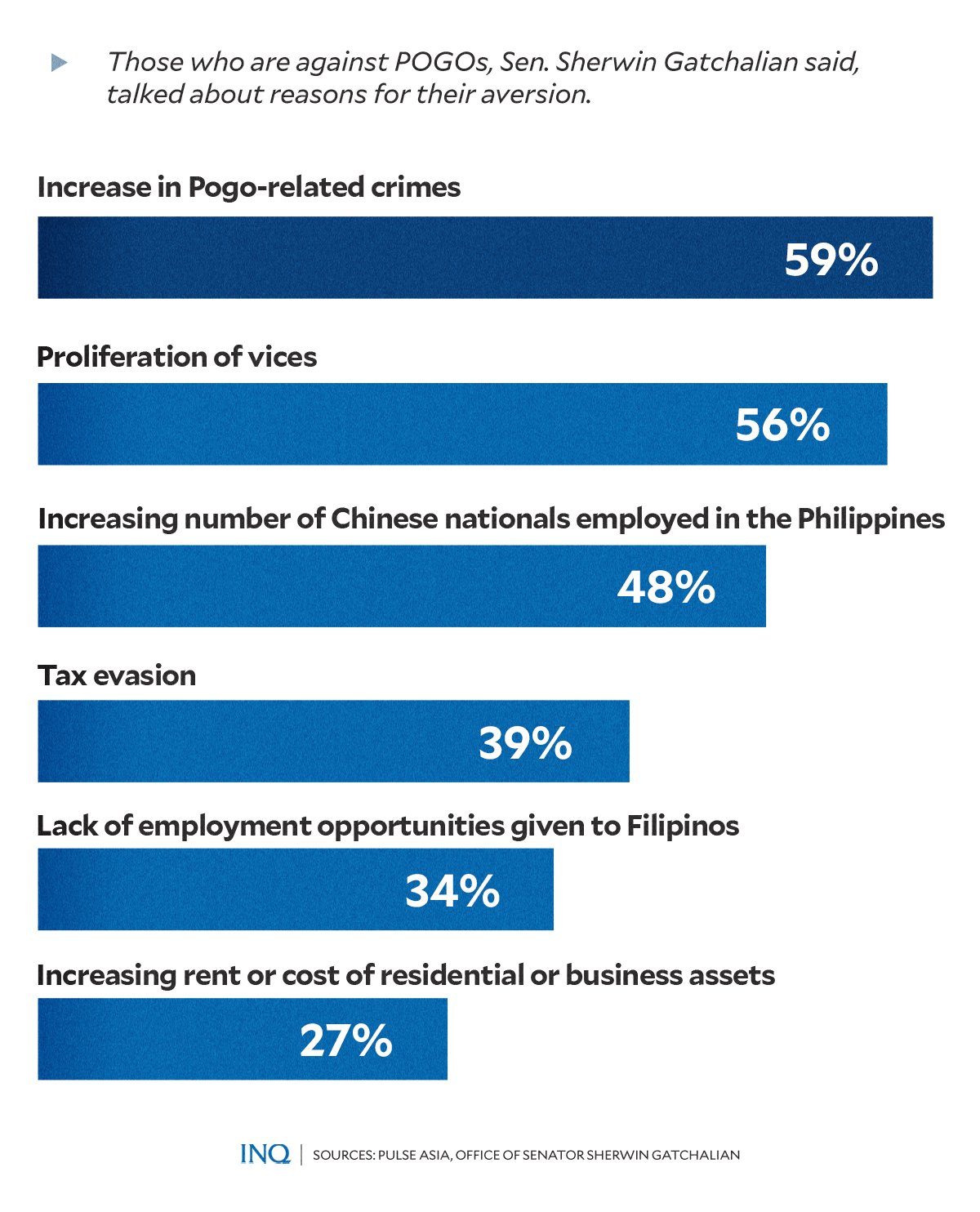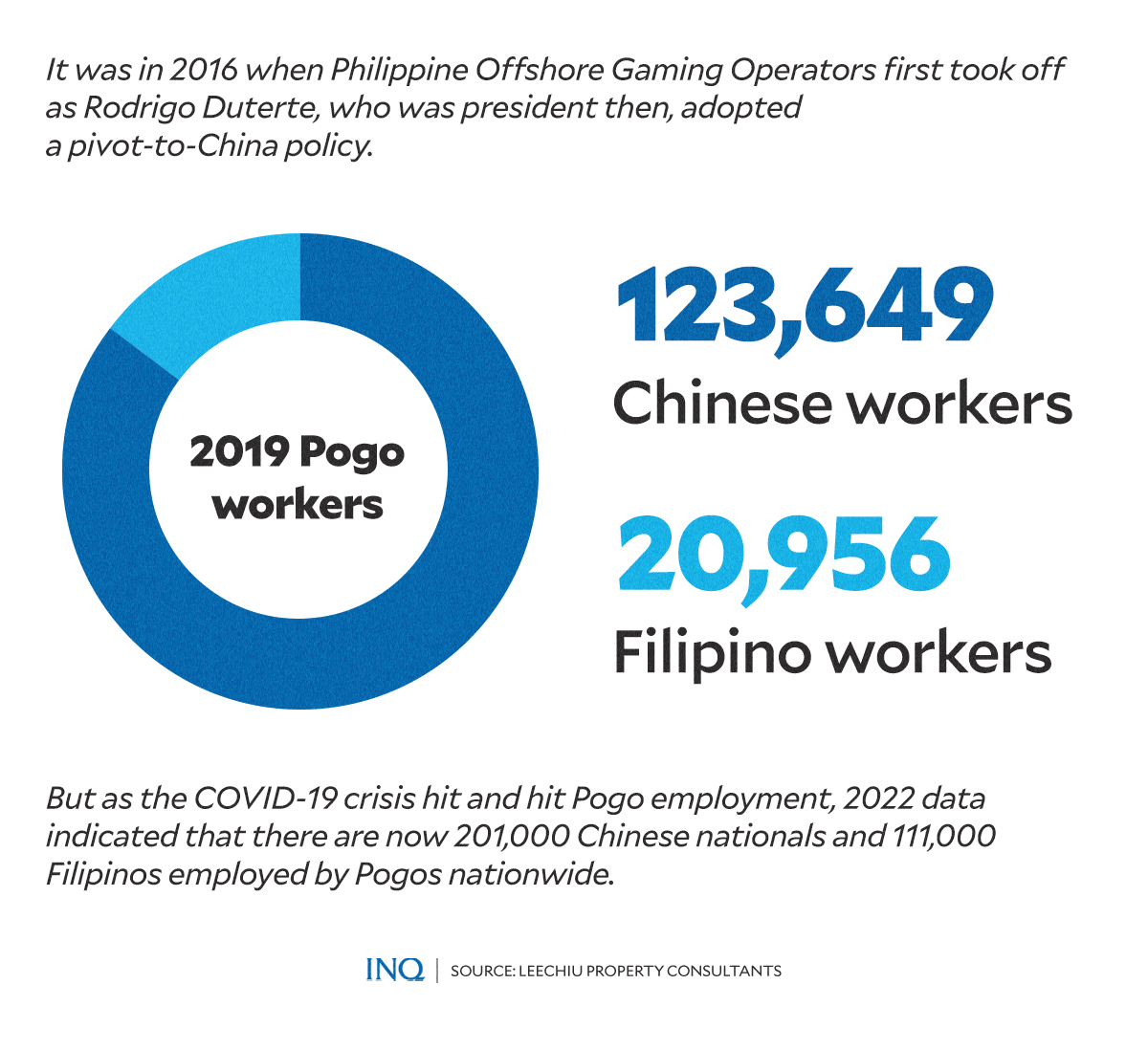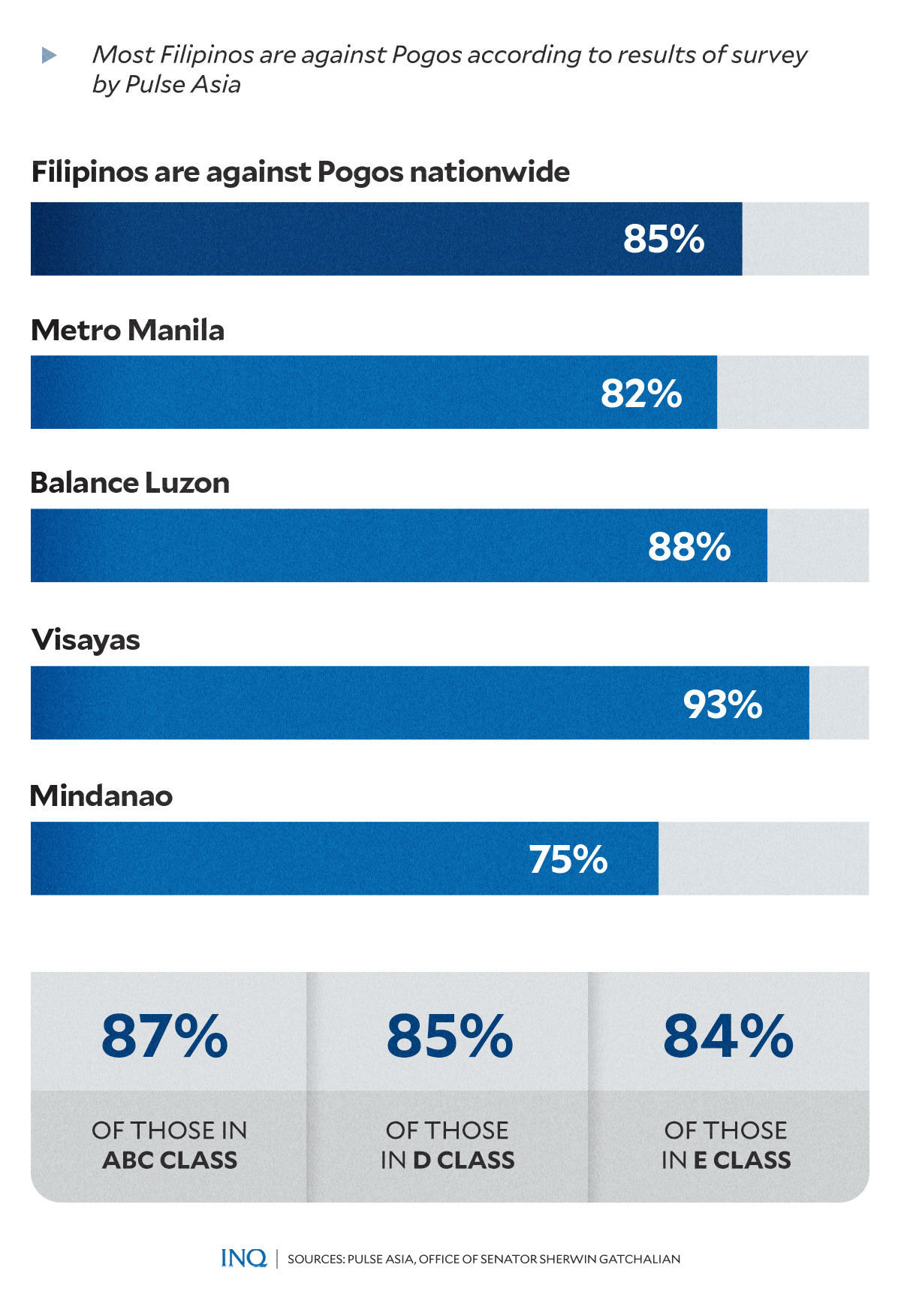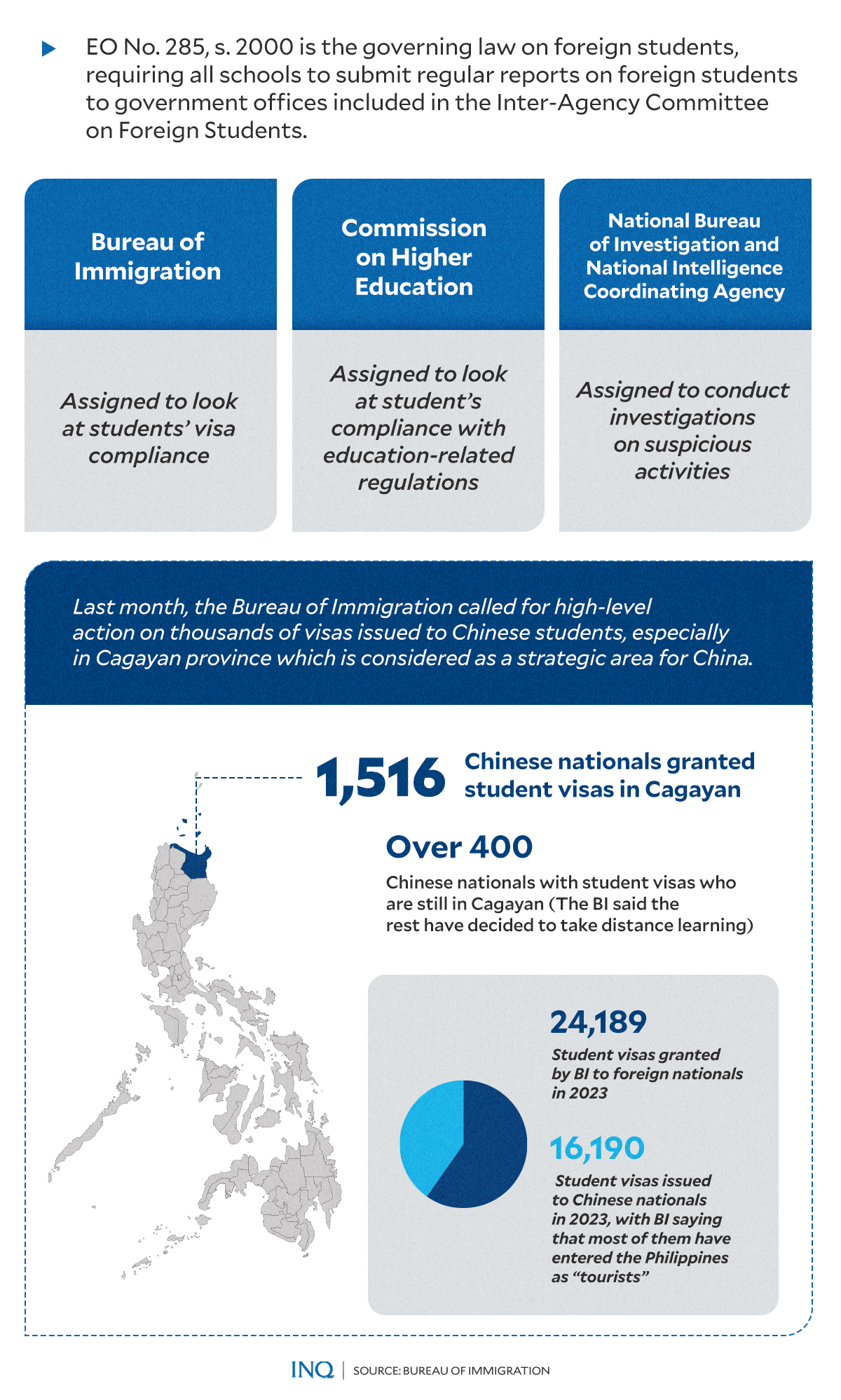MANILA, Philippines—The country has to be prepared, President Ferdinand Marcos Jr. said as he pointed out that external threats have become more pronounced.
But what if defense lines were already weakened even before the start of an open conflict?
Joshua Espeña, a defense analyst, had this stressed as Filipinos now talk about the extent of China’s presence in the Philippines–even in local governments, businesses, and educational institutions.
Why?
Espeña, vice president of the think tank International Development and Security Cooperation (IDSC), told INQUIRER.net that “infiltration has always been a playbook for belligerents.”
Based on data from the Philippine Navy (PN), 146 Chinese vessels were seen in the West Philippine Sea (WPS) from June 4 to 10 — most, or 108, were of China’s maritime militia.
READ: A first: China Navy holds drills within EEZ – AFP
The rest, 38, were of the People’s Liberation Army Navy (PLAN) and China Coast Guard (CCG), higher than the 20 from May 28 to June 3. Some 105 maritime militia vessels were seen then by the PN.
“The external threat now has become more pronounced,” Marcos said as he stressed not only the conflict over the WPS, but even the tension between China and Taiwan.
READ: PH needs to brace for external threats – Marcos
But threats could also come from within, considering the extent of China’s presence in the country, especially in Pogos, or Philippine Offshore Gaming Operations, schools, and even local governments.
Irregular warfare
Chester Cabalza, a defense analyst and president of IDSC, told INQUIRER.net that China certainly started drawing its grand strategy of unrestricted or irregular warfare.
This, he said, has the end goal of establishing hybrid and unconventional war strategies to secure its presence in the Philippines, stressing that it would be easier for China to occupy the Philippines if its forces have already penetrated the country.
“It is a Chinese art of war drawn in their war strategies for many centuries,” Cabalza said as he pointed out how significant irregular warfare is in infiltrating institutions—government, and even NGOs.
For Espeña, the extent of China’s presence in the Philippines is most likely an indication of an “inside-out” operational design with the aim of crippling local and national apparatuses to render an open conflict against China useless.
“This is nothing new as infiltration has always been a playbook for belligerents trying to weaken adversaries’ defense lines [even] before the start of an open conflict,” he said.
But is this even possible?
Overwhelming presence
It was in 2016 when Pogos first took off in the Philippines as Rodrigo Duterte, who was then the president, pivoted away from the United States and into China supposedly for closer trade and investment ties.
Based on data from Leechiu Property Consultants, there were 144,605 Pogo employees in 2019, but while COVID-19 whittled it down, 2022 data indicated that there are 201 Chinese nationals and 111,000 Filipinos employed by Pogos.
As the Philippine Amusement and Gaming Corporation said, Pogos are generating P20 billion in government revenues yearly, but for Cabalza, Pogos can be seen as “Trojan horses” in special economic zones and business districts.
READ: Pogo raid yields ‘PLA uniforms’; probably just props, says military
Last Monday, June 10, the Presidential Anti-Organized Crime Commission said authorities discovered suspected Chinese military uniforms when a 5.8-hectare Pogo complex in the province of Pampanga was raided on June 4.
But the Armed Forces of the Philippines said the supposed uniforms were probably “used as props” in the illicit online transactions of Lucky South 99, a Pogo in Porac that is allegedly engaged in human trafficking.
READ: Pogo operations near PH military bases should be stopped–Teodoro
For Defense Secretary Gilberto Teodoro Jr., since Pogos no longer work as intended, their operations near military bases should already be stopped, especially because of what he described as “syndicated criminal activities.”
READ: Solons back proposal to ban Pogos: Risks, dangers outweigh benefits
Most, or 85 percent, of Filipinos, based on the result of a survey conducted by Pulse Asia, are against Pogos, with 59 percent saying that the top reason for their aversion is the increase in crime incidents.
China in schools
Even in schools, China has an overwhelming presence through Chinese students granted with student visas, an issue that prompted a congressman in Cagayan province to seek an investigation into the apparent influx of Chinese nationals supposedly entering the Philippines as students.
The governing law on foreign students is Executive Order No. 285, s. 2000, requiring all schools that accept them to give regular reports to the Inter-Agency Committee on Foreign Students (IACFS).
Last month, however, the Bureau of Immigration (BI) called for high-level action on the issue of student visas granted to thousands of Chinese students, especially in Cagayan, a province that is considered “strategic” for China because of its proximity to Taiwan.
READ: 16,200 Chinese granted student visas
Based on data from BI, 1,516 Chinese nationals were granted student visas in Cagayan, all endorsed by a university in the province. But out of this, only 400 have decided to stay as the rest have chosen distance learning.
Overall, the BI granted 24,189 student visas to foreigners in 2023. Most, or 16,190 were given to Chinese students, who entered the Philippines as “tourists.”
As the BI said, “we have requested the high-level meeting to reiterate our previous requests for immediate joint inspections, and for it to become a regular conduct by the IACFS given new developments in national security concerns.”
Espionage?
It was last month, too, when the Senate started the investigation into a Pogo in Bamban, Tarlac and the alleged involvement of its mayor, Alice Guo, in the operations of the Pogo complex located beside the Bamban Municipal Hall.
With her birth registered when she was already 17 years old, Guo may have “come out of nowhere,” Sen. Risa Hontiveros said. Her birth did not have any supporting documents except for a “negative certification.”
The inconsistencies in Guo’s records and statements, and her alleged links to the Pogo in Bamban prompted some to accuse her of being an asset of China, an allegation she immediately denied.
For Cabalza, however, while it is not yet clear whether China has “assets” in the Philippines, looking back at hot and cold wards, belligerent nations [have] aggressively use[d] espionage in various ways to disrupt and disable citizens through these:
- Cognitive dissonance
- Gray zone tactics
- Political and economic coercions
“Since the Chinese Communist Party is fully-funded and well-networked in the region, thus, they employ sophisticated intelligence methods and techniques that are misread and misinterpreted by politicians and the masses,” he said.
How? Cabalza stressed: “By using spies that look like ordinary Filipino citizens.”
“Some of them are political and business leaders, strategists and think tankers, academics and cyber specialists. Or they fund popular politicians and artists to side on their favor,” he said.
Despite this, however, Cabalza said local politicians will support and protect them since Chinese investments are platforms to win the hearts and minds of local politicians and their constituents.
“China’s soft powers using education, finance, and sisterhood cities will become a lifeblood for municipalities and cities to fund their social development programs for the people,” he said.
“To legitimize trade ties and economic linkages, local politicians will host educational programs in their local prestigious universities, build business infrastructures in key developmental and strategic areas near critical infrastructures of the country or near military bases and camps, or recruit locals to man their big enterprises,” Cabalza said.
Weakening resolve
As pointed out by Espeña, when the Philippines is being attacked from within, the immediate impact is confusion and paranoia that can weaken a unified resolve.
“Divide-and-conquer is an invader’s playbook,” he said. This means that “targets will keep guessing whether the alleged spy [or spies] in question is one or otherwise.”
Espeña stressed that “by playing into the rigorous layers of Philippine bureaucracy for clarity about Alice Guo, China can hit its victim right, which is to dumbfound Manila’s security establishment in its line of defense and seek better diplomatic bargains in the long shot on the WPS.”
“Interestingly, China is likely betting on the mentioned operational design because it understands that a unified Filipino resolve can translate to credibility, which Manila’s allies and partners need as regional players muddle through the strategic environment,” he said.
“So, the ultimate end of this is to render the Philippines a useless player on the chessboard,” Espeña said, pointing out that while Manila offers no serious military opposition unilaterally, its alliance with the US, its diplomatic clout in its 2016 arbitral win, and its increasing defense network are.
He explained that while China takes advantage of the issues on the credibility of the US alliance commitment, it further adds salt to the wound by implicitly exposing Philippine weakness to fight alone for the WPS.
“If this is the case, modernizing military capabilities for a harder diplomatic bargain with Beijing on the WPS in the future may not work if it is already rotting in confusion on the inside,” he said.





